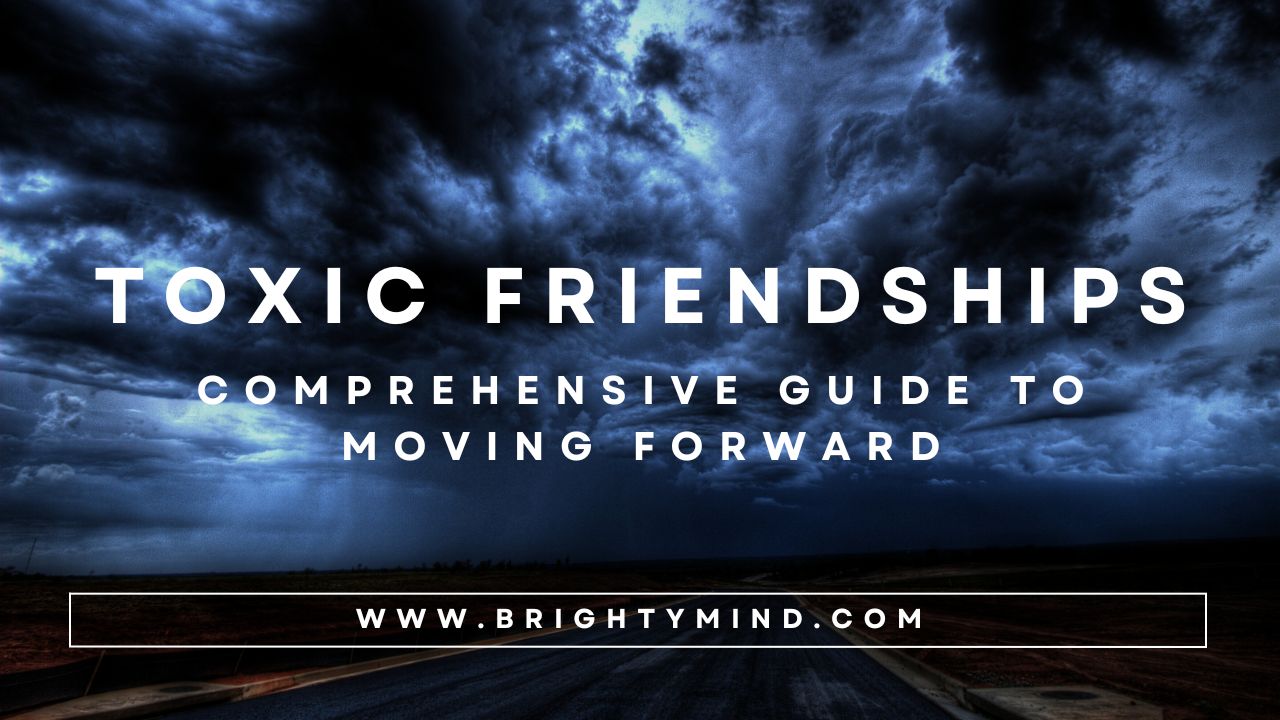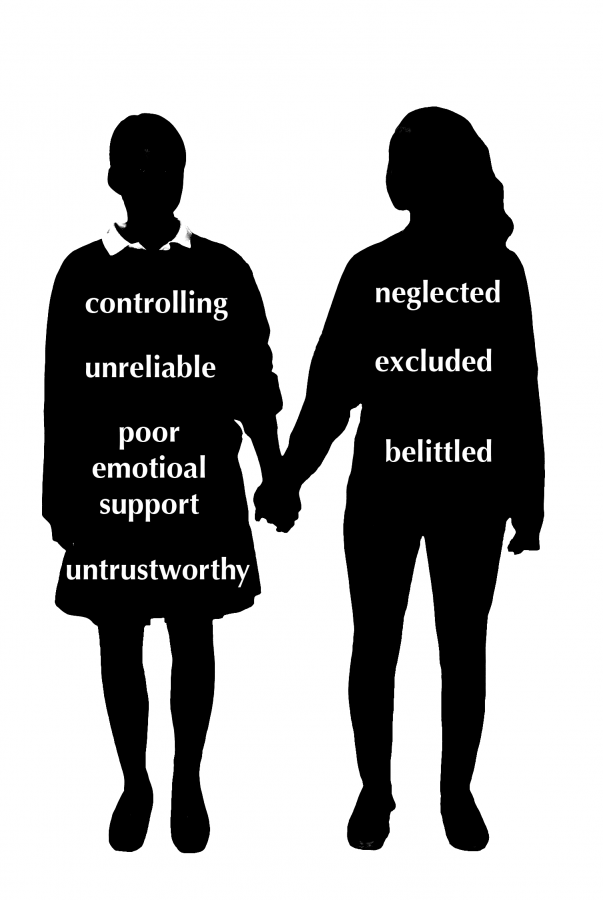
Toxic Friendships: Steps to Moving Forward
Friendships are meant to be sources of joy, support, and companionship. However, not all friendships are healthy or beneficial. Toxic friendships can be incredibly damaging, affecting our mental and emotional well-being in profound ways. Recognizing the signs of toxicity and learning how to navigate these relationships is crucial for our overall happiness and growth. In this comprehensive guide, we'll delve deeper into the impact of toxic friendships and provide actionable steps to move forward with positivity and self-care.

Understanding Toxic Friendships
Toxic friendships can manifest in various ways, each with its own set of negative consequences. Here are some common behaviors toxic friends may exhibit:
- Constant Negativity: Toxic friends often have a negative outlook on life and may constantly complain, criticize, or belittle others. Being around them can leave you feeling drained and emotionally exhausted.
- Manipulation: Manipulative friends may use guilt, coercion, or manipulation tactics to get what they want. They may play mind games or exploit your vulnerabilities for their benefit.
- One-Sidedness: Toxic friends may only be interested in their own needs and desires, neglecting yours in the process. They may expect you to always be there for them but are unwilling to reciprocate when you need support.
- Jealousy and Competition: Toxic friends may feel threatened by your successes and accomplishments, leading to jealousy and competitiveness. They may undermine your achievements or try to sabotage your progress to maintain their sense of superiority.
- Lack of Respect for Boundaries: Toxic friends may disregard your boundaries and personal space, crossing lines without regard for your feelings or autonomy. They may pressure you into situations you're uncomfortable with or violate your trust.
- Gaslighting: Gaslighting is a form of emotional manipulation where the toxic friend denies your reality, making you question your perceptions, memories, and sanity. This can leave you feeling confused, invalidated, and powerless.
The Toll of Toxic Friendships
Being in a toxic friendship can take a significant toll on your mental, emotional, and even physical health. Here are some of the ways toxic friendships can negatively impact you:
- Decreased Self-Esteem: Constant criticism, manipulation, and invalidation from a toxic friend can erode your self-esteem and self-worth over time. You may start to doubt yourself and internalize their negative messages.
- Increased Stress and Anxiety: Dealing with the drama, conflict, and negativity inherent in toxic friendships can contribute to heightened stress and anxiety levels. You may find yourself constantly on edge or emotionally exhausted from trying to navigate the relationship.
- Isolation and Loneliness: Despite having a friend, being in a toxic friendship can lead to feelings of loneliness and isolation. You may feel like you can't be your authentic self around them or that you have no one to turn to for support.
- Poor Mental Health: Toxic friendships have been linked to an increased risk of depression, anxiety disorders, and other mental health issues. The constant negativity and emotional manipulation can exacerbate existing mental health conditions or contribute to the development of new ones.
- Impact on Other Relationships: Toxic friendships can also affect your other relationships, including romantic partnerships, family dynamics, and friendships outside of the toxic one. Your energy and attention may be so consumed by the toxic friendship that you neglect or damage other important connections in your life.

Navigating Toxic Friendships: A Step-by-Step Guide
Now that we've explored the signs and consequences of toxic friendships, let's delve into actionable steps to help you navigate these relationships and find your way forward:
- Recognize the Signs: Take stock of your friendship and honestly assess whether it exhibits any of the toxic behaviors outlined above. Trust your instincts and pay attention to how you feel when you're around this person.
- Set Boundaries: Establish clear boundaries to protect your well-being and communicate them assertively but compassionately to your friend. Be prepared to enforce these boundaries if they are repeatedly violated.
- Have Difficult Conversations: If you feel comfortable, consider addressing your concerns with your friend directly. Use "I" statements to express your feelings and concerns without placing blame. Be prepared for various reactions, including defensiveness or denial.
- Seek Support: Reach out to trusted friends, family members, or a therapist for support and validation. Talking to someone who understands can provide perspective and help you feel less alone in your struggles.
- Practice Self-Care: Prioritize self-care activities that nourish your mind, body, and soul. Engage in activities that bring you joy, relaxation, and fulfillment, and prioritize your physical and emotional well-being.
- Evaluate the Friendship: Reflect on whether the friendship is worth salvaging and whether the positives outweigh the negatives. Consider the long-term impact of the relationship on your mental health and happiness.
- Let Go with Grace: If you ultimately decide to end the friendship, do so with grace and compassion. Choose a time and place to have a respectful conversation, and express your feelings honestly but kindly.
- Cultivate Healthy Relationships: Invest time and energy in nurturing positive, supportive relationships with people who uplift and inspire you. Surround yourself with individuals who respect your boundaries and encourage your personal growth.
Final Thoughts
Navigating a toxic friendship is never easy, but it's essential for your well-being and happiness. By recognizing the signs of toxicity, setting boundaries, seeking support, and prioritizing self-care, you can move forward with confidence and resilience. Remember that you deserve healthy, fulfilling relationships that bring out the best in you. Trust yourself to make the right decisions for your own happiness and growth, and don't be afraid to let go of anything that no longer serves you. Your mental health and well-being are worth it.



